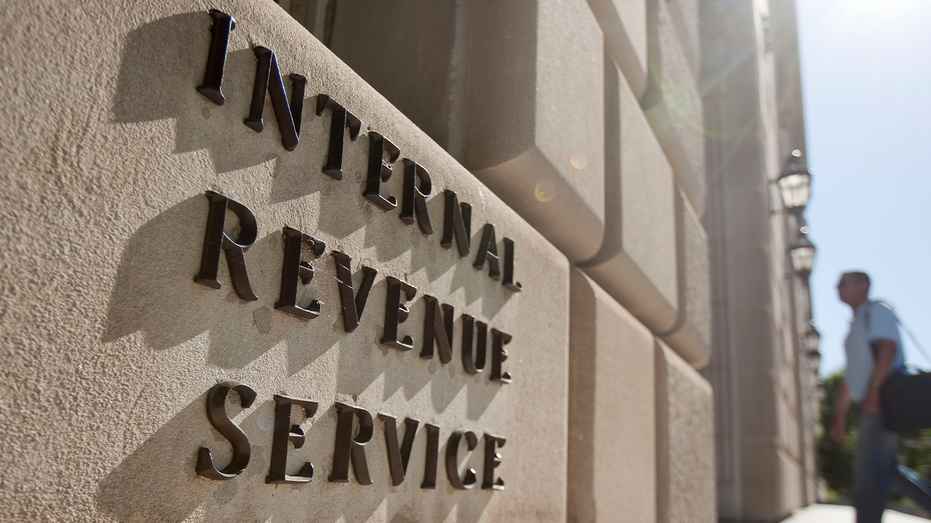My tax return is being audited. Now what?
The IRS audits under 1% of all tax returns each year
Taxes made easy for newlyweds and new parents
Sponsor Content: Tax advice for recently married couples and new parents filing in 2022
Filing taxes can be a nerve-wracking process. You want to make sure to get all of your information just right, because if you don't, you could end up paying the IRS more money or claiming a smaller tax refund than you're really due.
But messing up on your tax return could also, in some cases, lead to an audit. And even if you don't make any mistakes, your tax return could still end up being flagged for an audit if it meets certain criteria beyond your control.
Tax audits can be a scary thing – but they don't have to be. The key is to know what to expect and how to handle one.
WAITING ON A TAX REFUND FROM LAST YEAR? HERE'S SOME GOOD NEWS
Your chances are slim
Let's get one thing out of the way. The IRS audits under 1% of all tax returns each year. This doesn't mean you're guaranteed not to get picked. But it does mean that if you do what you're supposed to do, there's a good chance you won't have to worry about an audit.
BEHIND ON FILING YOUR TAX RETURN? MAKE THIS KEY MOVE
When your tax return gets flagged
If you've ever seen a tax audit play out in a movie, it usually involves a threatening IRS agent busting down an office door and demanding to see copies of paperwork. But that's not how audits work in real life. If your return is chosen to be audited, that audit will happen by mail the majority of the time.
The IRS is actually sorely understaffed these days and has been for years. As such, it doesn't have enough employees to send someone to the door of every taxpayer whose return needs a closer look. And if the IRS is going to send an agent to meet with a taxpayer in person, that'll really only happen if the amount being questioned is significant. If you're claiming a $1,200 refund and the IRS thinks it only owes you $1,000, it's not going to send a person to your home or office to go after that money.

A man enters the Internal Revenue Service (IRS) building in Washington, D.C., U.S., on Friday, May 7, 2010. (Andrew Harrer/Bloomberg via Getty Images / Getty Images)
So what should you expect? Most of the time, you'll get a letter from the IRS explaining there's a discrepancy on your tax return. You'll generally be told what the specific problem is and given a chance to correct it.
You may, for example, be told you're missing a key tax form or that you've failed to report specific income. In that case, submitting that form and agreeing to an adjusted refund or tax bill could easily solve the problem.
GET FOX BUSINESS ON THE GO BY CLICKING HERE
So, let's say your brokerage account sent you a 1099 form indicating you sold stocks at a profit last year, and now, as a result, you owe the IRS $200 more than you said you did on your tax return. If you acknowledge that error and agree to the larger tax bill, you're done. If you disagree with what the IRS is saying, you'll need to submit proof backing up your claim (say, copies of brokerage account statements showing your 1099 form is wrong).
In some cases, the IRS might simply ask you for further documentation related to your tax return. If you submit it, you should be set. If you don't have that documentation, you can reach out to the IRS and ask what to do, or consult a tax professional.
CLICK HERE TO READ MORE ON FOX BUSINESS
Don't panic
The idea of being audited might send you into a full-fledged panic, but that's generally not necessary. While a tax audit might create some extra work for you, in many cases, that work will be minimal. And even if it's more extensive, it doesn't necessarily mean you're in trouble or that you're looking at a much larger tax bill than anticipated.
It's also worth noting that in some cases, an audit could result in you owing less money to the IRS. Before you get all worked up, take a deep breath, read your IRS notice carefully, and figure out what needs to be done to resolve the matter at hand.
The Ascent does not cover all offers on the market. Editorial content from The Ascent is separate from The Motley Fool editorial content and is created by a different analyst team.The Motley Fool has a disclosure policy.




















